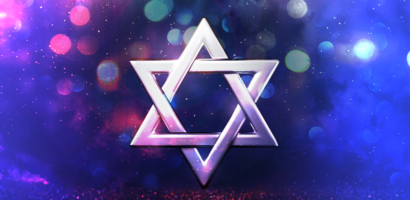What do you do if you’re desperate to use the bathroom and don’t know how to ask for where it is? You panic and remember the chance you had to watch the video associated with this blog! Of course, that’s not going to happen. You’re in a safe place, and we’ll teach you what actual Israelis (and others living or visiting Israel) consider to be the most important Hebrew phrases to use when visiting Israel.
Watch the video, and don’t worry, we’ll spell out all the transliterated text here!
Key phrases list
Shalom — Hello/Bye/Peace
Shalom is one word you should know. If you don’t, it essentially means “peace” but is the used word for hello and goodbye. You’d use it as you approach someone you wish to engage with, using one of the other phrases on this list.
Eifo ha shirutim? — Where is the bathroom?
We consider this one of the most important phrases to learn. Especially if you put too much chili on your shawarma while out and about.
Ata medaber Anglit? — Do you speak English?
Just as important as the former phrase, especially if you’re bad at remembering lots of phrases. You’ll be pleasantly surprised to know a fairly large number of Israelis do in fact speak English. But it’s important to ask them first. Politeness paints pretty pictures.
Ani lo medaberet ivrit — I don’t speak any Hebrew
To use as an interjection when someone starts sprouting the language at you, for whatever reason. You can follow up with the former phrase and hope for the best. Or you will be reduced to communicating with improvised sign language (Still, Hebrew is a great language to learn, and it helped reunite the Jewish people after thousands of years apart).
Mayim bevakasha — Water, please
Israel is a hot country. Once completely a desert, in fact, though thanks to Israeli ingenuity in the late 40s and 50s, much agricultural land was created. But it’s still really hot, even in Winter, so this request will come in handy as you won’t get too many more phrases out with a parched throat.
Mazgan? — Air conditioning?
Helpful when making inquiries about which hotel to stay at. Very helpful.
Kama ze oleh? — How much does it cost?
Remember, the currency is shekels. This is important to know when you visit the markets where the items don’t often have price tags. Such as a pretty woolen scarf in a souk in the Old City.
Ze yoter midai — That is too much
What you say when the previous question yields dissatisfactory results. Looks like you won’t be getting that pretty scarf.
Kama ata yechol la’asot li? — How much can you do for me?
When you try to bring the price down. Used in conjunction with the previous phrase. Maybe you’ll get the pretty scarf after all.
Lo — No
When declining something.
Ken — Yes
When affirming something.
Toda Raba! — Thank you very much!
Israelis expect some politeness, and being grateful for services rendered will get you very far!
Bevakasha — Please
When asking for anything. Of course. Manners make friends!
Ma shlomcha? — How are you?
It’s good to enquire about people’s well-being. Some Israelis will talk mostly about business, some about their health. Others about how proud they are that their son or daughter just finished med school. Israelis make for proud parents. Or very disappointed ones. Then you’ll wish you’d never asked, “Ma shlomcha?”.
Sababa — Great
Useful to show appreciation for just about any situation! As, in, “I got us front row seats to the Coldplay concert!” “Sababa!”. But also, you can use it for the previous question when someone asks you, “Ma shlomcha?”.
Chutzpa — Gall
Actually, a Yiddish word that’s been incorporated into Modern Hebrew. It’s essentially used to convey that the actions of someone are dripping in sheer audacity. An example would be at an office function, where a low-level employee forces his way into a conversation with the company CEO — and tells him what he thinks is the best strategic direction for the business. The thing is… this sometimes actually works. Having chutzpa comes with brazen self-confidence that looks a lot like arrogance to many, and hence is seen as an unattractive quality.
Slicha — Excuse me
What you can say when someone pushes ahead of you in the queue (The chutzpa!). This will happen a lot if you let it, so don’t be a doormat.
Achi — My brother
Remember what the chap said in the video! This is good for schmoozing.
Subscribe to our newsletter
Learn Hebrew slang, take a virtual tour across Israel, discover the best local food and so much more
Atsor nahag! — Driver, stop!
Whether the taxi guy actually can hear you while listening to his CD of traditional Israeli folk songs is another story. Maybe try Uber instead. You can also try this with a bus.
Eze kivun ha tachana ha merkazit? — What direction is the Central Bus Station?
You might want to write this one down, but it’s important. The Central Bus Station will take you a bit further than the taxi guy would. Like to the next city.
Mamash — Really
Really? You need to know this word? Well, it’s helpful when you’re in Hebrew conversation, and you don’t know much Hebrew. You can just nod your head and say, “Mamash? Mamash?” in response to everything your new acquaintance is saying.
Yalla — Let’s go
But go to where? That is the question You could go and study some more Hebrew. Because the more you learn a new language, the better.
Stam — Nothing
Used more or less in the context of, “it’s no big deal” or “no worries”, or “it’s fine”. Like if someone bumps into you and spills their drink on you and you don’t want them to feel bad about it. Or, used like “I’m just kidding, it’s nothing, relax!”
Ani ohev otach — I like you
And… not in the context of, “hey you’re a nice guy”. More like… I liiiike you. Ladies, be sure to tread carefully when this is said to you. If he’s your type, great. If not, say, “Lo! Not in a million years!” And, guys, only say it to a nice gal making flirty eye contact with you from across the bar.
But wait, there’s so much more to learn!
Learning key phrases will only get you so far. You’re going to want to embrace Hebrew as a language to truly understand and appreciate Israel and Israeli culture. Especially if you’re considering moving, working, or visiting there. And we can help!
Through the Rosen School of Hebrew’s immersive teaching methods, our courses will have you speaking Modern Hebrew like a true Israeli (especially if you do our Israeli Accents course as well). It’s the best way to travel, live, and work in the land of milk and honey. So, sign up for our Ulpan courses today, and you won’t be saying “Ani lo medaberet ivrit,” anymore.












 Available on WhatsApp
Available on WhatsApp
Join the conversation (No comments yet)